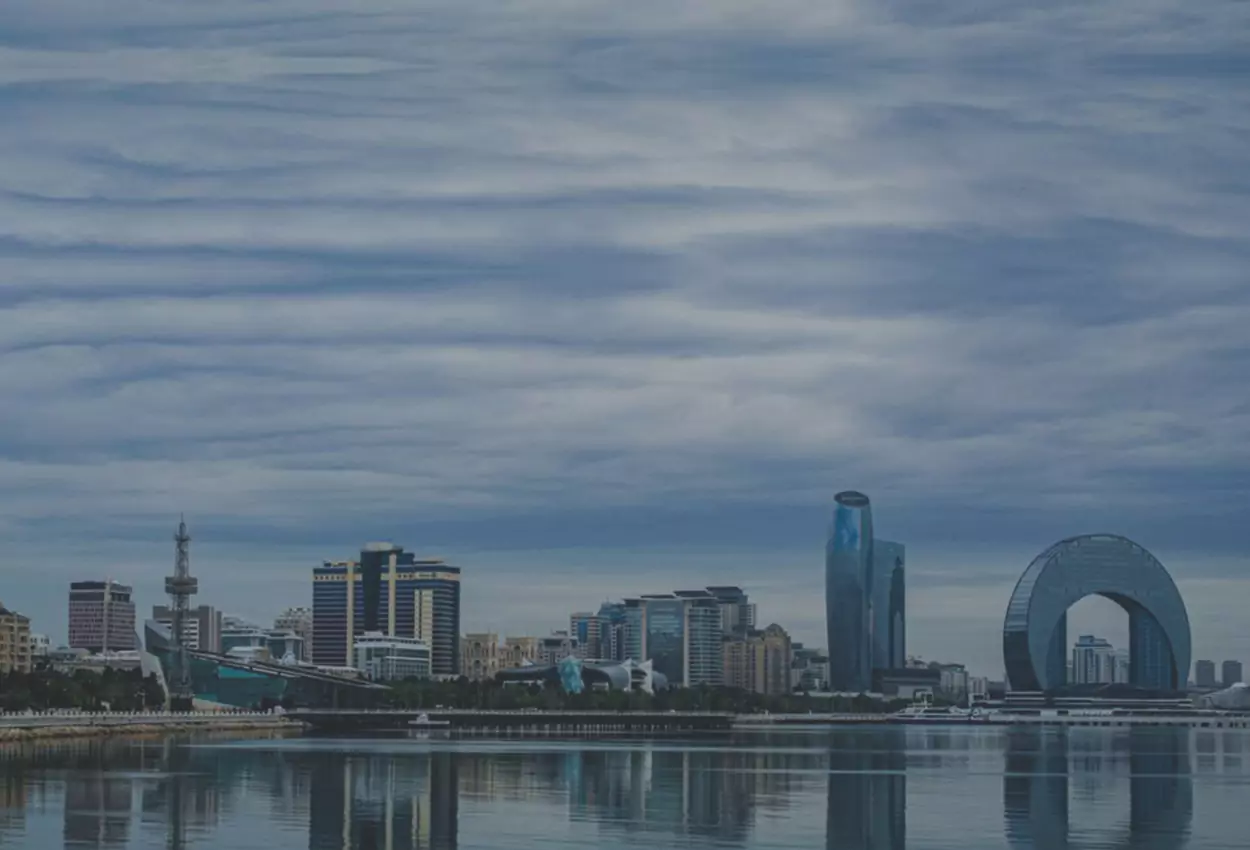Introduction
Azerbaijan, a nation celebrated for its vast oil and natural gas reserves, is a critical energy supplier, particularly to European nations. The country’s economy is heavily reliant on hydrocarbon exports, which account for more than 90% of export revenues and approximately 60% of government income. Italy is Azerbaijan’s primary trade partner, with nearly 57% of its oil and 20% of its natural gas exports feeding Italy’s energy needs, primarily through the Trans Adriatic Pipeline (TAP).
However, with the global pivot toward decarbonization and adherence to Paris Agreement targets, demand for fossil fuels is projected to decline drastically. This case study examines Azerbaijan’s challenges in transitioning to a sustainable energy framework and presents recommendations to mitigate economic and environmental vulnerabilities.
Background
Azerbaijan’s energy sector is anchored by its rich reserves of oil and natural gas. The country has been a vital player in Europe’s Southern Gas Corridor, with infrastructure such as the TAP and the Baku-Tbilisi-Ceyhan pipeline enabling it to transport hydrocarbons across continents. These pipelines have been instrumental in solidifying Azerbaijan’s status as an energy hub.
Despite its success in the hydrocarbon sector, Azerbaijan’s heavy reliance on fossil fuel exports exposes it to risks. The anticipated decline in fossil fuel demand due to Europe’s energy transition highlights the urgency for Azerbaijan to diversify its economy and energy portfolio.
Problem Statement
The global transition to renewable energy poses significant challenges to Azerbaijan’s fossil fuel-dependent economy. Europe, Azerbaijan’s primary energy market, is actively decarbonizing in alignment with its 2030 climate targets. As renewable energy sources become more viable, Azerbaijan risks being left with stranded hydrocarbon assets.
While the government plans to expand the TAP’s capacity to enhance gas exports, research suggests that current infrastructure is sufficient to meet Europe’s projected demand for natural gas. This raises concerns over unnecessary investments in fossil fuel infrastructure that may soon become obsolete.
Key Findings
- Economic Vulnerability
Azerbaijan’s fiscal health is intricately tied to the volatile global energy markets. Fluctuations in oil and gas prices directly impact government revenues, making the economy vulnerable to external shocks. This dependence could lead to economic instability as global demand for fossil fuels decreases. - Infrastructure Expansion Concerns
Investments in expanding the TAP and other fossil fuel infrastructures may lead to stranded assets. With Europe’s transition to renewable energy accelerating, Azerbaijan’s additional hydrocarbon export capacity could become redundant, leading to financial losses. - Sustainability Potential
Azerbaijan has significant potential for renewable energy, particularly solar and wind power. Its geography, characterized by ample sunshine and strong wind corridors, provides a solid foundation for a sustainable energy transition. Collaborations with European nations could enable Azerbaijan to leverage this potential.
Analysis of Challenges
Overdependence on Fossil Fuels
Azerbaijan’s oil and gas sector is the backbone of its economy, funding social programs, infrastructure, and public services. The government’s reliance on hydrocarbon revenues makes it challenging to pivot toward alternative industries without significant economic restructuring.
Stranded Asset Risks
Stranded assets represent a growing concern as Europe aggressively pursues renewable energy. Investments in fossil fuel projects with declining long-term profitability could burden Azerbaijan’s economy, reducing its capacity to fund critical diversification efforts.
Geopolitical and Market Dynamics
Azerbaijan’s energy strategy is also influenced by geopolitical factors. Its role as a supplier in the Southern Gas Corridor is not only economic but strategic, strengthening ties with Europe. However, shifting market dynamics may reduce the geopolitical importance of hydrocarbons, prompting Azerbaijan to redefine its energy diplomacy.
Recommendations
- Economic Diversification Azerbaijan must prioritize reducing its reliance on hydrocarbons by fostering alternative economic sectors. Potential areas of growth include:
- Renewable Energy Development: Capitalize on Azerbaijan’s solar and wind resources to create a sustainable energy industry. Large-scale renewable projects could reduce domestic energy reliance on hydrocarbons, freeing up resources for export while aligning with global sustainability goals.
- Tourism and Agriculture: Diversifying into tourism and high-value agriculture could provide employment opportunities and create stable revenue streams independent of energy markets.
- International Cooperation
- Technical and Financial Support: Collaborate with European partners, particularly Italy, to secure funding and expertise for renewable energy projects. Joint ventures in solar and wind energy could accelerate Azerbaijan’s transition.
- Knowledge Exchange: Engage with international organizations to adopt best practices in sustainable energy development and policy formulation.
- Policy Reforms
- Decarbonization Policies: Implement policies to encourage energy efficiency, reduce emissions, and promote the adoption of renewables. This includes tax incentives for green projects and penalties for high-carbon activities.
- Investment in Education and Innovation: Build human capital to support a knowledge-based economy, focusing on STEM education and research in clean energy technologies.
- Leveraging Existing Infrastructure
- Transition existing oil and gas facilities to support renewable energy production and storage. For instance, offshore oil rigs could be repurposed for wind turbines, ensuring infrastructure is utilized efficiently.
Potential Opportunities
- Solar Power
Azerbaijan’s extensive sunlight hours make it ideal for large-scale solar power projects. These initiatives could supply domestic energy needs and export clean energy to neighboring countries. - Wind Energy
The Caspian Sea’s coastal areas provide strong wind currents suitable for wind farms. Offshore wind projects could become a cornerstone of Azerbaijan’s renewable energy strategy. - Hydrogen Economy
Leveraging its existing gas infrastructure, Azerbaijan could explore green hydrogen production, positioning itself as a future supplier in the global hydrogen market.
Conclusion
Azerbaijan stands at a crossroads as the world shifts toward a sustainable energy future. The challenges posed by its reliance on fossil fuels are significant, but so are the opportunities for transformation. By embracing renewable energy, fostering international collaborations, and enacting progressive policy reforms, Azerbaijan can secure its economic resilience and relevance in a decarbonized global market.
The path forward requires bold decision-making and strategic planning. As Europe accelerates its transition, Azerbaijan’s proactive approach to diversifying its energy and economic portfolio will determine its ability to thrive in a changing world. By aligning its strategies with global sustainability goals, Azerbaijan can not only mitigate risks but also emerge as a regional leader in clean energy innovation.



